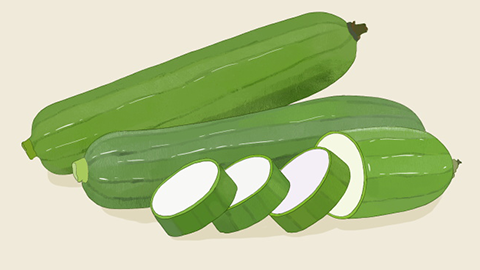Can I eat luffa after scar surgery?
Generally speaking, patients can eat luffa (sponge gourd) after scar surgery. Luffa is nutritious and has a neutral nature, which usually does not negatively affect the recovery process after surgery. The detailed explanation is as follows:

Luffa contains vitamin C, B-complex vitamins, dietary fiber, and various minerals, which can supply the body with essential nutrients after surgery, help strengthen immunity, and promote wound healing. After scar surgery, patients need sufficient nutrition to support physical recovery. Consuming light dishes such as stir-fried luffa or luffa and egg soup can provide necessary nutrients without irritating the surgical wound, making it a relatively safe dietary choice.
During the recovery period after scar surgery, patients should avoid consuming spicy, stimulating, greasy, or allergenic foods. Luffa does not belong to these categories. Provided the patient is not allergic to luffa, its consumption generally will not aggravate scar hyperplasia or affect the recovery process. Additionally, luffa has a high water content and a mild taste, making it suitable for postoperative patients who may have weakened digestive functions. It does not burden the gastrointestinal system and helps maintain normal body metabolism.
After scar surgery, patients should pay attention to cooking methods when consuming luffa, avoiding the addition of spicy seasonings, and eat it in moderation. A balanced diet with adequate protein and vitamin-rich foods should also be maintained to better promote wound healing.









